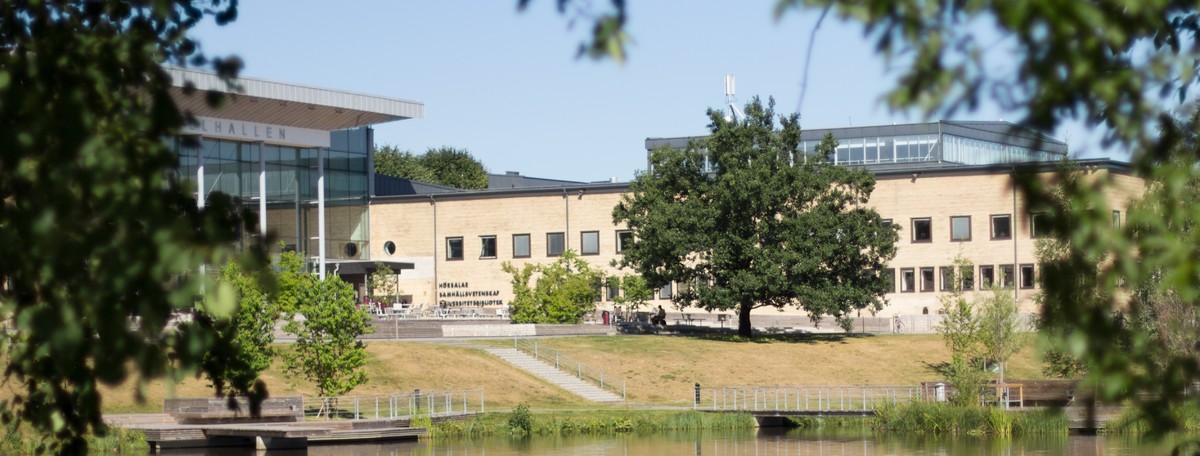Staff scientist with focus on AI trustworthiness modeling in human-robot interactions - Hiring in process/Finished, not possible to apply
This advert is not available!
Umeå University, Faculty of Science and Technology
Umeå University is one of Sweden’s largest higher education institutions with over 37,000 students and about 4,700 employees. The University offers a diversity of high-quality education and world-leading research in several fields. Notably, the groundbreaking discovery of the CRISPR-Cas9 gene-editing tool, which was awarded the Nobel Prize in Chemistry, was made here. At Umeå University, everything is close. Our cohesive campuses make it easy to meet, work together and exchange knowledge, which promotes a dynamic and open culture.
The ongoing societal transformation and large green investments in northern Sweden create enormous opportunities and complex challenges. For Umeå University, conducting research about – and in the middle of – a society in transition is key. We also take pride in delivering education to enable regions to expand quickly and sustainably. In fact, the future is made here.
Are you interested in learning more? Read about Umeå university as a workplace
Department of computing science
The Department of Computer Science has experienced significant growth in recent years. The department is involved in several national and international research projects. Creating an inclusive research environment where employees are highly engaged is a key factor in our sustainable development. Our department consists of a diverse group of people from various nationalities, backgrounds, and fields.
Read more at https://www.umu.se/institutionen-for-datavetenskap/
Project description
The purpose of the research project is to identify factors that may undermine the trustworthiness of data and models used in human-robot interaction and further investigates common and specific trustworthiness issues related to fairness and safety in human-robot interaction applications. An AI trustworthiness model will be developed and validated ensuring that both data and models of human interaction are robust, especially in the selected industry use cases.
This staff scientist position is linked to the research group Deep Data Mining in the department of Computing Science, which focuses on fusing data science and artificial intelligence and developing AI trustworthiness (e.g., fairness, privacy, safety) models. The project is part of the EU project XSCAVE (https://www.xscave.eu/) whose ambition lies on large scale deployment of autonomous heavy mobile machines in earthmoving, forestry and urban logistics industries. The XSCAVE consortium involves eleven partners from all over Europe.
To meet these needs, we are now looking for a staff scientist. The position is temporary for 12 months on full time and is expected to start in February 2026 or according to agreement.
The project offers opportunities for:
- Participating in pioneering research and innovation initiatives, gaining interdisciplinary knowledge.
- Internal and international collaborations with academic research groups and industrial companies in the field of AI robotics, large language modelling, simulation, mobile robotics, and off-road heavy equipment.
Duties and responsibilities
As a staff scientist with us, your main duties will include:
- Investigate elements that may undermine the trustworthiness of data and models used in human-robot interaction.
- Develop and validate an AI trustworthiness model that addresses bias and ensures safety to promote transparency.
- Collaborate with partners to enhance the trustworthiness model by mitigating identified risks associated with large language models (LLMs).
- Research dissemination (e.g., peer review scientific publications, presentations).
Qualifications
You need:
- A PhD degree in computer science, mathematics, or engineering physics, preferably with a focus on data analysis, AI trustworthiness, human robotics development.
- Hands-on experience in the field of data science.
- Communication skills in English
Other desirable merits:
- Practical experience in AI trustworthiness-related topics (e.g., fairness, privacy or explainable AI or safety).
- Experience in machine learning, causal inference, image processing, human-robot interaction, or large language models.
- Experience in analyzing multimodal data (e.g., text, sensor, images etc.).
Personal characteristics:
- Ability to work independently, with effective problem-solving skills and a collaborative mindset.
- Ability to communicate and document your work.
- Ability to disseminate research achievements through peer review publications.
Application
Your application should include:
- Cover letter in which you provide a brief description of your research interests and a statement describing why you are interested in the position (no more than 2 A4 pages).
- CV with publication list.
- Verified copy of doctoral degree certificate and other relevant degree certificates.
- Copy of doctoral thesis and up to five relevant articles,
- Other documents that the applicant wishes to claim.
- Contact information to two persons willing to act as references.
The application should be written in English or Swedish.
Contact: For further information, please contact associate professor Lili Jiang (lili.jiang@umu.se).
Apply via our e-recruitment system Varbi no later than 2025-09-10. Start date 2026-02-01 or as agreed.
Welcome with your application!
| Type of employment | Special fixed-term employment |
|---|---|
| Contract type | Full time |
| First day of employment | 2026-02-01 or as agreed |
| Salary | Monthly pay |
| Number of positions | 1 |
| Full-time equivalent | 100% |
| City | Umeå |
| County | Västerbottens län |
| Country | Sweden |
| Reference number | AN 2.2.1-863-25 |
| Union representative |
|
| Published | 19.Jun.2025 |
| Last application date | 10.Sep.2025 |

